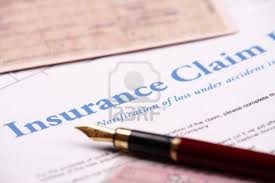 Florida Insurance Appraisal Process
Florida Insurance Appraisal Process
If you find yourself in appraisal with your insurance company to set the amount of damages for your claim, you might be interested in the ethical rules for insurance umpires.
Last month, the Windstorm Insurance Network or WIND, released their ethical rules for umpires to ensure the fairness and integrity of the appraisal process. The following are the ethical rules as of January 17, 2018:
An Umpire shall:
-
- Be a neutral party.
- Have no financial interest in any involved property or in the outcome of the appraisal.
- Disclose any previous business relationship with any party, appraiser or attorney retained by a party.
- Promptly disclose any potential conflict of interest before accepting an assignment as an umpire, and notify the parties immediately if a conflict or potential conflict arises during the course of the appraisal proceedings.
- Not accept any assignment that he or she is not certain he or she is qualified to handle.
- Confirm any fee arrangement with the parties in writing.
- Confirm the issues to be addressed in the appraisal in writing with the parties.
- Agree to inspect the property if requested to do so by either appraiser.
- Maintain impartiality and neutrality throughout the appraisal process and uphold the integrity of the proceedings.
- Share all communications with all members of the appraisal panel throughout the appraisal proceedings.
- Be responsible to proceed diligently to conclude the appraisal proceedings.
- Retain only unbiased, qualified and impartial experts.
- Inquire of any retained expert as to any potential conflict of the expert.
- Evaluate completely all presented facts and/or claims.
- To the best of his or her ability, follow the law of the jurisdiction of the property.
- Withdraw from the proceedings if a conflict arises and the conflict is not waived in writing by all parties after notice to the parties of the conflict.
- Not withhold signature on any appraisal award until payment for services is received.
- Maintain records in good order during the appraisal process in accordance with any applicable rules or guidelines for preservation once the matter is concluded.
- Keep true and accurate records of time, expense and fee billings.
- Keep an updated list of all properties and parties for which he or she served as an umpire for a period of seven (7) years.
- Maintain and keep current all applicable professional licenses and continuing education requirements.
- Be truthful and accurate in all marketing or advertising activities.
How Appraisal Works
Appraisal is an informal dispute resolution process to establish the amount of damages for an insurance claim. The availability of the appraisal process for your claim depends on the terms and conditions of your insurance policy. In short, you will need to review your insurance policy to determine if appraisal is available and how to invoke it for your claim.
Normally, each party selects their own appraiser. Often the parties will select the adjusters they are working with. That means the insurance company will select its independent insurance adjuster and the homeowner will select its public adjuster. If the two appraisers are unable to come to an agreement as to the amount of damages, they will need to agree on a third party to serve as an umpire. In the unlikely event the appraisers cannot agree on an umpire, a petition will need to be filed in Court for a judge to select a neutral umpire.
The Appraisal Umpire
The umpire will, in the end, be the deciding voice as to the amount of damages for the claim. To reach this decision, the umpire can and often visits the property to see the damages, reviews repair estimates, and speaks with the property owners, experts, or repair personnel. The umpire’s appraisal award must be signed by at least one of the other appraisers for it to be final. Absent a showing of fraud or collusion, the final decision of the umpire will set the amount of loss.
Integrity of the Appraisal Process
As you can see, the umpire is an important participant in the appraisal process. Given the importance, it is crucial to select the right umpire for your appraisal. Retired judges often serve as umpires for insurance appraisals. In any case, you will want to have an umpire that is familiar with the unique issues that your insurance claim presents as well as being a person of unquestioned ethics and honesty.
WIND
The Windstorm Insurance Network has positioned itself as an organization whose mission is to promote education, awareness, and fairness for the insurance claim process. In doing so, WIND has established criteria and standards for its members along with a certification process for umpires and appraisers. Verifying that your umpire is WIND certified helps to ensure you will be treated fairly during the appraisal process.
About the Author: Patrick Russell, Esq., has been a member of The Florida Bar since 1994 and is an experienced Florida insurance lawyer. Patrick started his insurance law practice more than twenty years ago when he represented homeowners and business owners for their Hurricane Andrew insurance claims. The purpose of this article is educational and not for the solicitation of legal services. The goal is to avoid the mistakes learned from the past, specifically those from previous windstorms. Knowledge is power. Information is free. Mistakes are costly. If you would like more tips on how to process your Florida insurance claim, Patrick can be reached at (305) 608-2977 or here.

